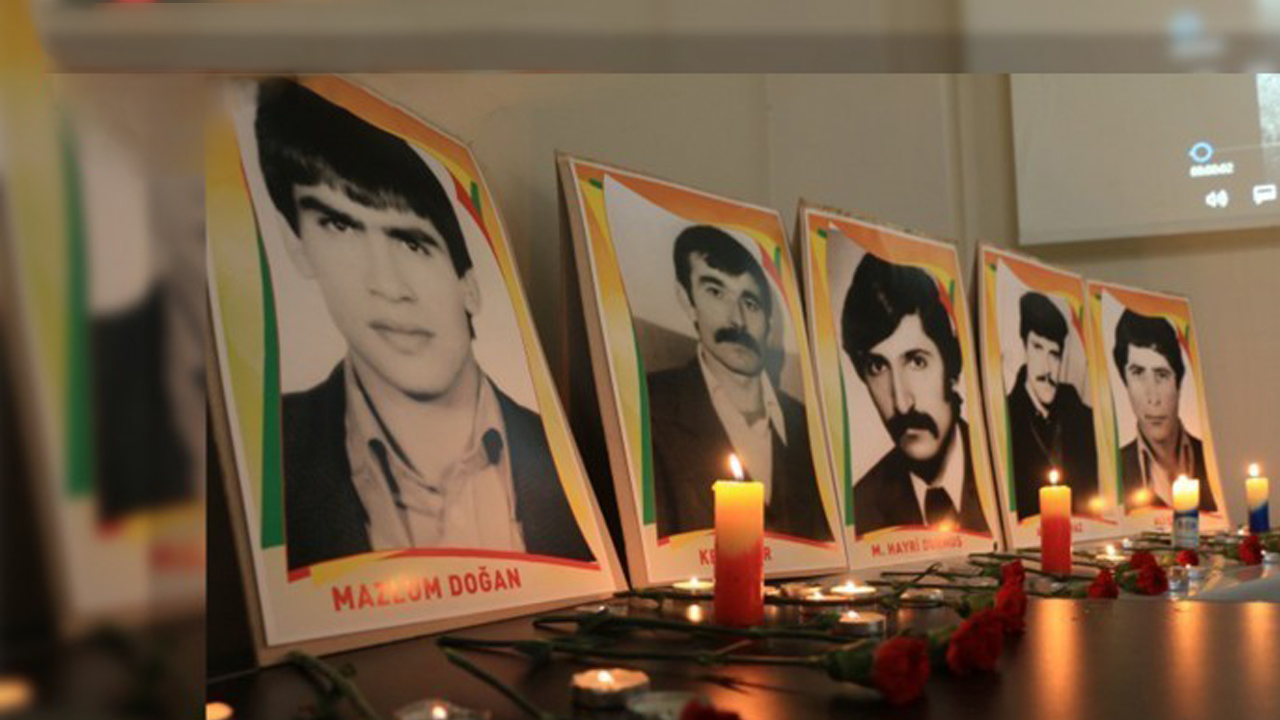July 14 marks the 40th anniversary of a great act of resistance against the torture Kurdish political prisoners were subjected to in the infamous Diyarbakır (Amed) Prison No.5, following Turkey’s 1980 military coup.
Thousands of Kurds and a smaller number of Turks, facing charges of association with the then-newly emerging Kurdistan Workers’ Party (PKK), were imprisoned and subjected to extreme torture and inhumane practices, ranging from beatings and sexual assault to being forced to eat excrement.
On this day in 1982, Mehmet Hayri Durmuş, Kemal Pir, Akif Yılmaz and Ali Çiçek went on a death fast to protest the prison conditions. All four passed away within two months. Earlier in May, prisoners Ferhat Kurtay, Eşref Anyık, Mahmut Zengin and Necmi Öner had set their bodies on fire.
The first spark had come on Newroz that year, when founding PKK member Mazlum Doğan set his cell on fire with three matches and hanged himself on 21 March, leaving behind a note that has since become legend among Kurds: “Surrender leads to betrayal, resistance leads to victory.”
Torture practices in Diyarbakır No.5 targeted both the inmates’ dignity, by forcing them to salute the prison director’s shepherd dog for instance, and mental health, by the continuous blasting of the Turkish national anthem and other nationalist marches. Physical mistreatment and torture practices included severe beatings and hangings by the arms, asphyxia and mock executions, piling prisoners on the concrete floor naked, electric shocks to genitals, stress positions and sensory deprivation, bathing in sewers, among many others.
Some of these practices are implemented in some 300 prisons today, Hüseyin Barış, chairman for the left-wing 78liler Association and survivor of the Diyarbakır prison, told Mezopotamya Agency.
While official figures say 37 people were killed in the prison in the post-coup period between 1980 and 1984, Barış said civilian initiatives had discovered at least 55 deaths due to torture.
The Diyarbakır Prison became a defining symbol in the Kurdish collective memory, and many of its former inmates later went into politics. Among the thousands who survived the prison are at least eight former MPs, including former Peoples’ Democratic Party (HDP) co-chair and former mayor of Diyarbakır Gültan Kışanak, and former Democratic Society Party (DTP) co-chair and former mayor of Mardin (Mêrdîn) Ahmet Türk. Former HDP MP Altan Tan’s father Bedii Tan had also died after being forced to eat excrement as he was fasting for Ramadan in the prison.
Kurds and left-wing groups in the country continue to demand that the prison be made into a museum of shame. In 2014, the 78liler Association collected 100,000 signatures to this end, to which the Justice Ministry responded positively. However, while the Diyarbakır Municipality changed zoning plans to give the area the appropriate designation, the central government refused to take any steps after 2015, when a peace process between Ankara and the PKK failed.
Source:MedyaNews
***Show us some LOVE by sharing it!***



